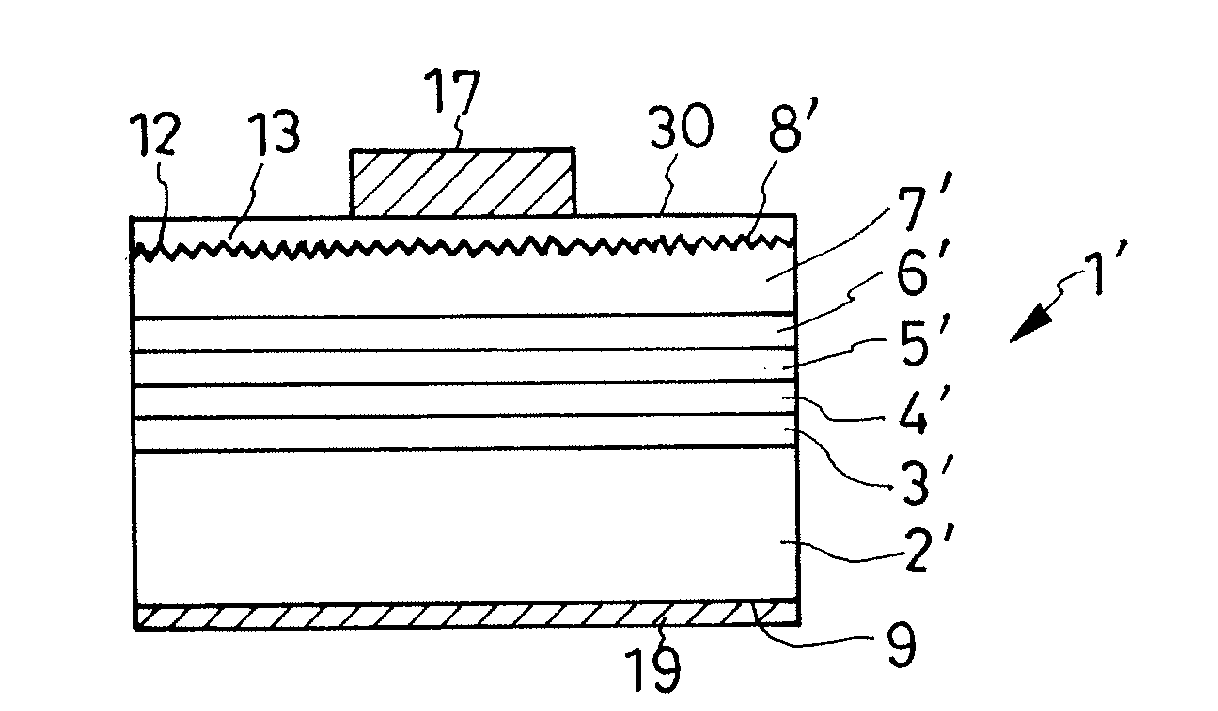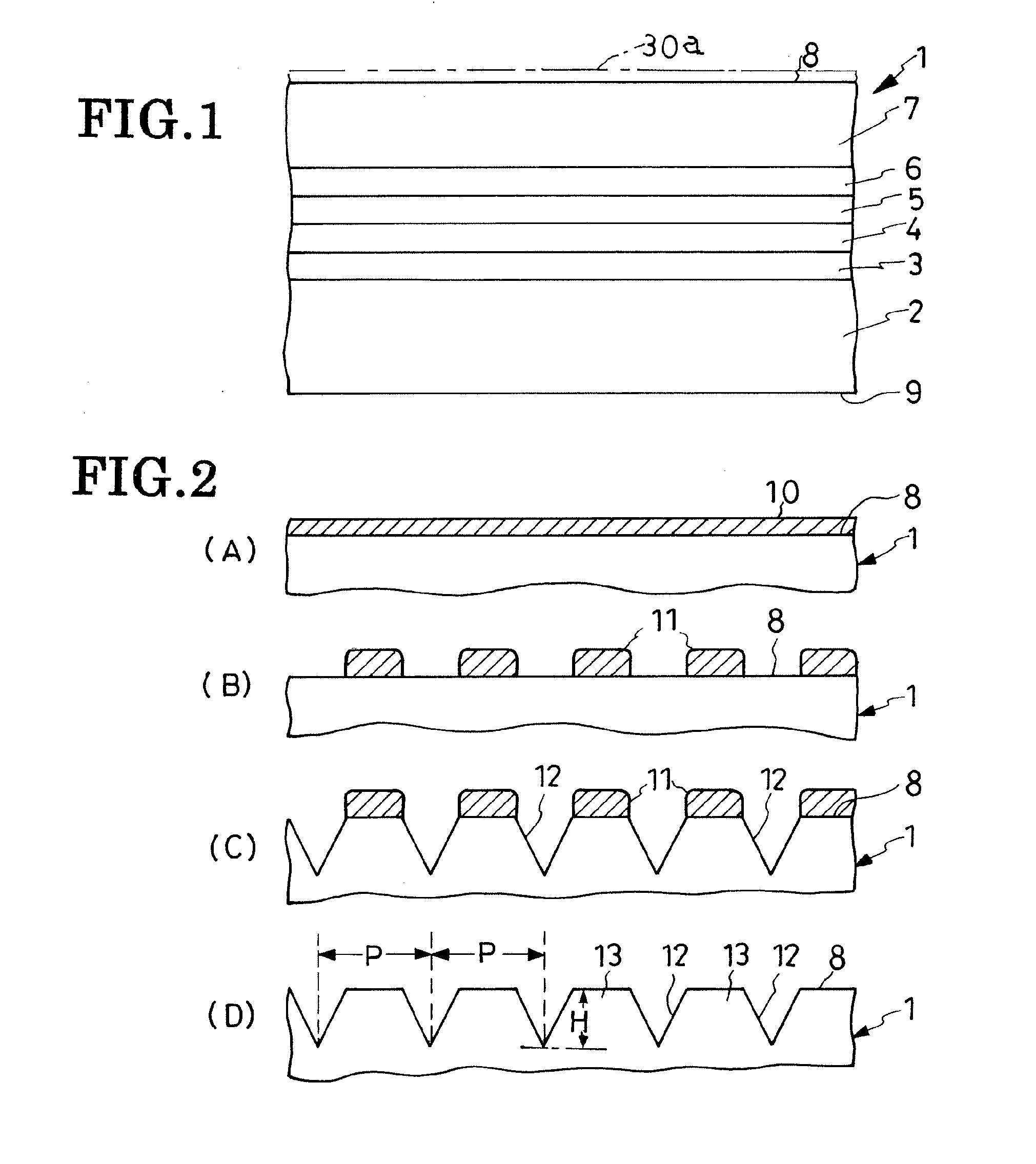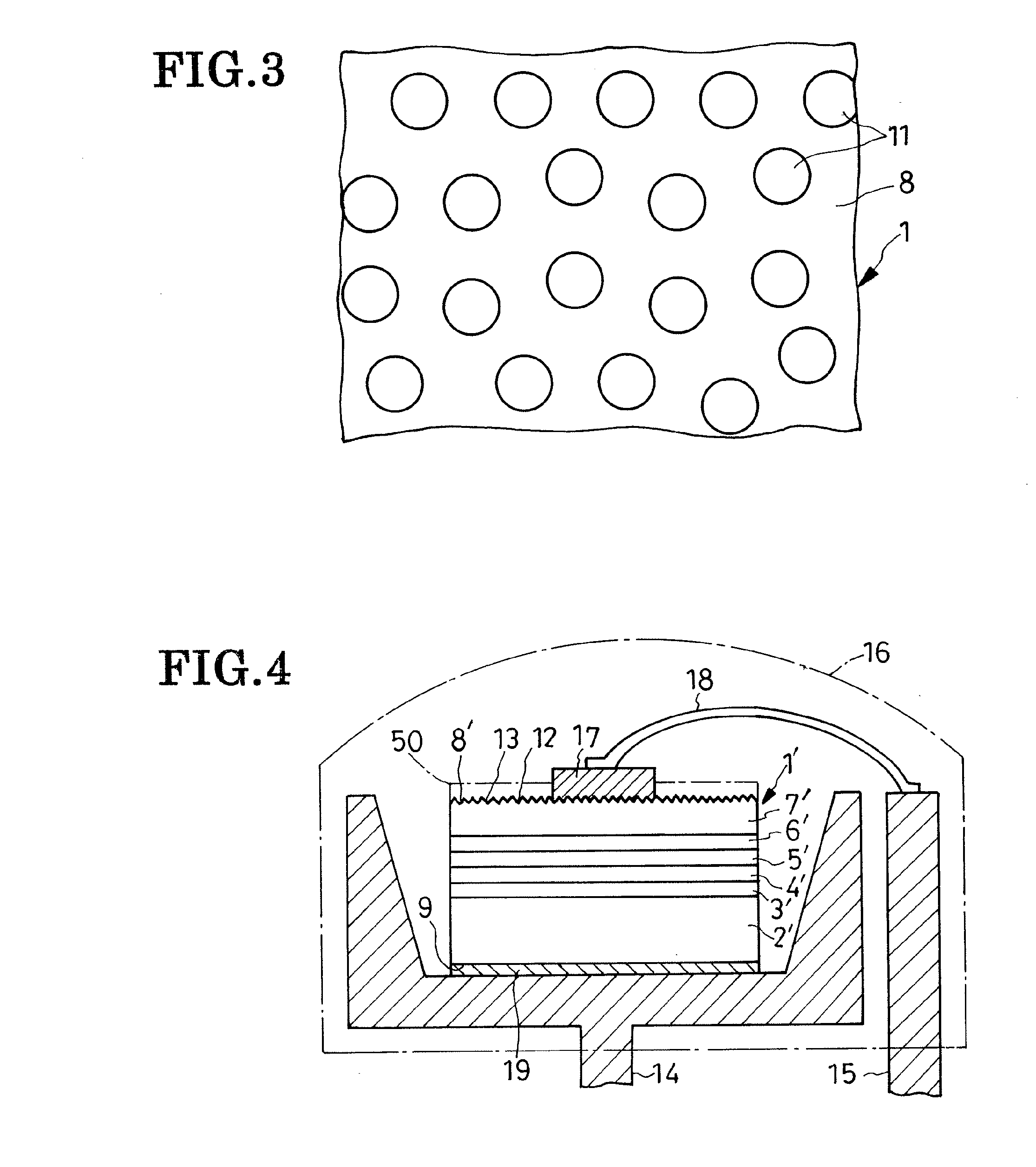Surface-roughening method
a surface roughening and surface technology, applied in semiconductor/solid-state device manufacturing, electrical equipment, semiconductor devices, etc., can solve the problem of unerringly creating surface unevenness in the order of tens or hundreds of nanometers, affecting the efficiency of led machining, and difficult to achieve the effect of smoothing desired work surfaces more easily and inexpensively
- Summary
- Abstract
- Description
- Claims
- Application Information
AI Technical Summary
Benefits of technology
Problems solved by technology
Method used
Image
Examples
Embodiment Construction
[0022]The particulate mask surface-roughening method according to the present invention will now be described more specifically as applied by way of example to an LED wafer of known double heterojunction design, which is to be subsequently diced into LED chips or dies. As pictured in FIG. 1, the exemplified double heterojunction LED wafer I has a substrate 2 on which there are successively grown a buffer 3, an n-type semiconductor layer or lower cladding 4, an active layer 5, a p-type semiconductor layer or upper cladding 6, and a supplementary layer 7.
[0023]The substrate 2 is of silicon doped with either n- or p-type impurity to possess electric conductivity. Alternatively, the substrate 2 may be made from any such known or suitable materials as sapphire, ceramics, or semiconductors other than silicon.
[0024]The buffer 3 is multilayered, having multiple alternations of an aluminum nitride and a gallium nitride layer grown by epitaxy. A monolayered buffer is adoptable instead. It is ...
PUM
 Login to View More
Login to View More Abstract
Description
Claims
Application Information
 Login to View More
Login to View More - R&D
- Intellectual Property
- Life Sciences
- Materials
- Tech Scout
- Unparalleled Data Quality
- Higher Quality Content
- 60% Fewer Hallucinations
Browse by: Latest US Patents, China's latest patents, Technical Efficacy Thesaurus, Application Domain, Technology Topic, Popular Technical Reports.
© 2025 PatSnap. All rights reserved.Legal|Privacy policy|Modern Slavery Act Transparency Statement|Sitemap|About US| Contact US: help@patsnap.com



